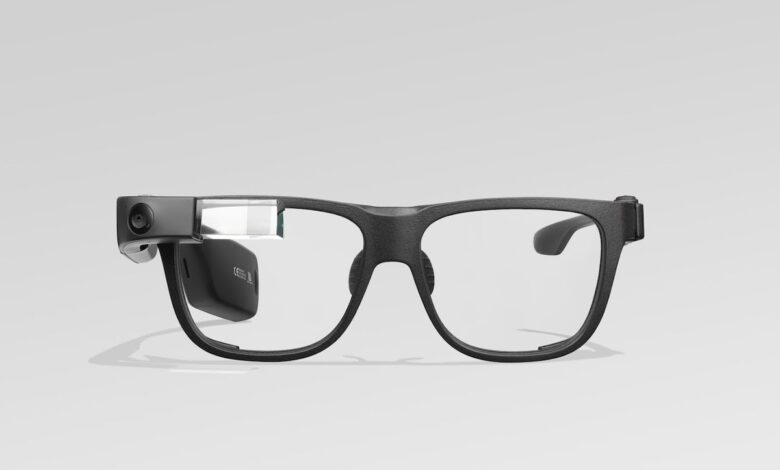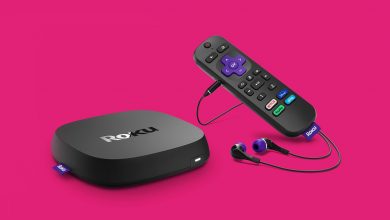Will smart glasses replace smartphones?


On July 19, 2022, Google announced testing of new smart glasses with augmented reality technology. Inevitably, the question that has been plaguing the tech industry since 2013 – when Google launched its first smart glasses – has returned: Will smart glasses replace smartphones ?
Meta CEO Mark Zuckerberg believes that smart glasses will replace smartphones by 2030. Inventor of Microsoft Hololens, Alex Kipman, agrees and says Bloomberg that “smartphones are dead”, but people still don’t know it. Even the top smartphone manufacturers agree that something big is bound to come.
Nokia CEO Pekka Lundmark, speaking at the World Economic Forum in Davos, said that 6G will become a reality by 2030, but users won’t connect to their smartphones, they will connect to smart glasses, CNBC reported.
Glasses such as Toshiba’s dynaEdge, Magic Leap One, Microsoft Hololens and Google’s Enterprise Glass Edition, have sold and performed well but are primarily aimed at the industrial and business sectors. They are used in smart factories, to train technical workers, conduct inspections, run digital twins, and are even worn by NASA astronaut.
On the other hand, smart glasses aimed at mass consumers are gradually gaining traction. Glasses like the Lenovo ThinkReality A3, Amazon Echo Frames, Bose Frames, Snap Spectacles 3, Nreal Air glasses, and Oculus Quest 2 — made by Meta — are touted as gateways to the Metaverse. However, there are a number of technical and legal reasons why smart glasses have not been fully accepted by consumers.
Smart glasses: Technical and legal challenges
Mounting a fully functioning microcomputer on a pair of glasses is an engineering challenge. The processor chip and hardware should be smaller than the chip inside a smartphone, but stable and powerful enough to provide data-intensive features of augmented reality that even smartphones can’t. provided.
In addition, the size and battery life, control options, connectivity, audio, video and especially the micro-display, prove to be major barriers hindering the technology’s development.
On the other hand, smart glasses for personal use have caused controversy due to the tracking of personal data and abuse of the privacy of individuals by recording videos, taking pictures or obtaining audio and other data without consent is not obtained.
UNDERSTAND: Ethical policy on artificial intelligence (TechRepublic Premium)
In September 2021, Meta’s Rayban smart glasses were flagged by Italian and Irish privacy watchdogs DPC and Garante. DPC and Italy’s data protection regulator requires Meta to demonstrate how the smart glass notifies others when it captures audio and video.
Amazon, Google, Meta, and even Apple, have each faced lawsuits over privacy and data management. Legal processes in Europe reserve the right to suspend or modify new products or services. Tech companies could even be ordered to cancel product launches in the region.
Data and privacy policies continue to be in high demand by global consumers and there are a number of regulations put in place to ensure them. Companies that develop smart glasses must meet requirements set forth by legislation such as the General Data Protection Regulation (GDPR), an important European privacy and data protection law. And In the US, they must also comply with federal and state data and privacy laws.
These technical, ethical and legal complications will inevitably disrupt the widespread adoption of smart glasses globally. It could also be one of the reasons Why hasn’t Apple revealed its smart glasses yet?. The Cupertino company may be perfecting its product to meet these challenges.
Google’s Metaverse: Reality versus Illusion
Unlike Apple, Microsoft and especially Meta, Google’s Metaverse project has so far held a low position. However, the company has recently begun to take a more aggressive approach to building the hardware and software behind their immersive reality experiences.
In December 2021, Google hired Mark Lucovsky—Oculus-Meta OS CEO — as senior director of the newly created operating system team for augmented reality. The team was formed to develop the Operating System for what Google describes as an “innovative augmented reality device”. After eight months and Google announced a test of new smart glasses technology.
“Augmented reality is opening up new ways to interact with the world around us,” Google said in their announcement blog post. Google’s vision for the metaverse is one where “technology helps people do everyday tasks”.
Wearing these new smart glasses, users can instantly translate in real time as they chat in the real world through text overlays in their field of vision. Google is also testing augmented reality navigation features for their new smartphones and translates text applications, such as when a user reads menus.
UNDERSTAND: Metaverse Scam Table: Everything You Need to Know (Free PDF) (TechRepublic)
Google’s new smart glasses prototype is neither bulky nor heavy. It looks like normal glass with an in-lens display and image and sound sensors. The smart glass prototype is moving from lab testing to real-world testing to determine the limitations it has. Google also wants to know how real-world factors like weather or busy streets affect its AR experiences.
A few dozen Googlers and trusted testers were selected for the small-scale test. Prototypes include an in-lens display, microphone, and camera, but do not film, record or take pictures to avoid privacy issues associated with smart glasses.
Google explains that most of the images used during the experience will then be deleted. Some image data may be stored for analysis and debugging, but sensitive content such as faces and license plates will be discarded. Like Meta’s Rayban smart glasses, this new Google prototype alerts other users that the camera is working through a visible LED mounted on the frame of the glasses.
Google seems to be moving towards an augmented reality, building digital features that work for everyday life on top of reality. This sobering overall vision contrasts greatly with the colorful virtual reality vision that Meta, Roblox, Decentraland and Microsoft, including some, are developing. If smart glasses are to replace smartphones, they will certainly have to offer the real-world functions that smartphones offer today, which gives a clear market advantage for virtual reality glasses. compared to virtual reality headsets.




